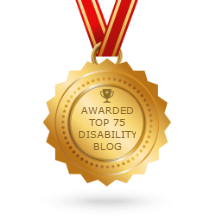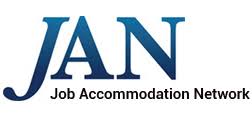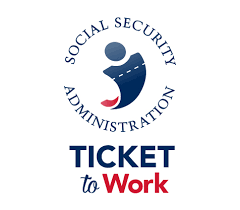By Mary Dale Walters, Guest Blogger
Finding a job right now is difficult enough, but when you have a disability, it can seem insurmountable. In May 2020, the Bureau of Labor Statistics found that the unemployment rate for people with disabilities was 17.9%, and for those without disabilities unemployment was at 12.8%.
Job seekers with disabilities already face discrimination and false stereotypes in the recruiting process, as well as worries about if/when to disclose their disability and concerns about reasonable accommodations. It’s easy to feel hopeless when you keep receiving rejections, and it’s even easier to let doubt creep in: Will I ever find a job? Am I even capable of finding a job? Am I qualified enough?
The answer is simple: Yes. As capable and qualified individuals, here are three things to keep in mind when things get tough:
- Understand you may not get hired right away, but don’t get discouraged.
Overall, businesses are still adjusting to the current crisis, and nonessential businesses have been hit the hardest. Some are completely restructuring their service and workplace interactions, while others are forced to make tough decisions and scale back on employment due to limited operations or decreased demand.
Consequently, the entire recruitment process, from applications to in-person interviews, is evolving. But rest assured, businesses are ensuring that nondiscriminatory practices and protections remain in place. Employers are still being held legally accountable to provide reasonable accommodations and employers are still legally prohibited from denying a job offer based on disability.
- Focus on your strengths and be clear about the accommodations you need.
One of the most important things you can do during this process is be persistent and stay confident. Keep applying and interviewing for as many positions as there are available, and when you do, remember to highlight your strengths.
The ability to work from home has become a key hiring criteria, and telling a recruiter you have the experience to keep up with the changing circumstances in the workplace will carry tremendous weight. Prior work-from-home experience can translate into various strengths recruiters are looking for: solid time management, organizational skills, and a proactive approach to setting priorities and completing work. While others accustomed to the office may need extra time to adjust, you will already have a head start.
Even more impressive is that you are able to do this while managing a disability, at which point you have an opportunity to discuss how you work best. Perhaps you utilize screen-reader software, and it helps you to have a color-coded keyboard and/or an adjustable desk. Accommodations like these are extremely reasonable, and often extremely affordable for an employer. If you are worried about costs when revealing this information to a potential employer, rest assured, a Job Accommodation Network study found that 58% of employers didn’t have to spend anything for employees’ accommodations. And, to offset any potential costs, there’s a $5,000 tax credit available to employers of less than 30 who fall within a certain revenue bracket.
- Lean on programs designed to help with the hunt.
It’s also important to remember that you are not alone – there are programs designed to guide job-seekers with disabilities through the job hunt and hiring process.
One such program, the Ticket to Work (TTW) program, is administered by the Social Security Administration and is available – for free – to anyone who receives Social Security Disability Insurance (SSDI). With the help of SSA-approved Employment Networks (EN), the TTW program helps beneficiaries find new or similar careers after they medically recover, all while protecting their disability benefits as they seek employment. ENs work directly with beneficiaries to educate them about the TTW process, create an Individual Work Plan, and support them during the challenging – especially it today’s labor market – return-to-work process.
There are an abundance of opportunities out there for individuals with disabilities – even in our post-COVID-19 world. Just keep these three things in mind, and you may be surprised to see how quickly and easily you can grasp them. 
Mary Dale Walters is a Senior Vice President at Allsup and editor of Applying for Social Security Disability Insurance: Getting It Right The First Time.







No Comments
No comments yet.